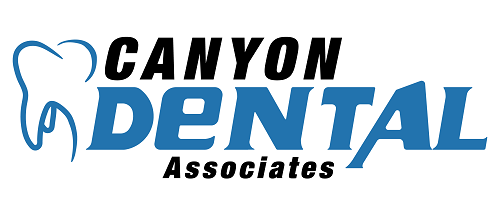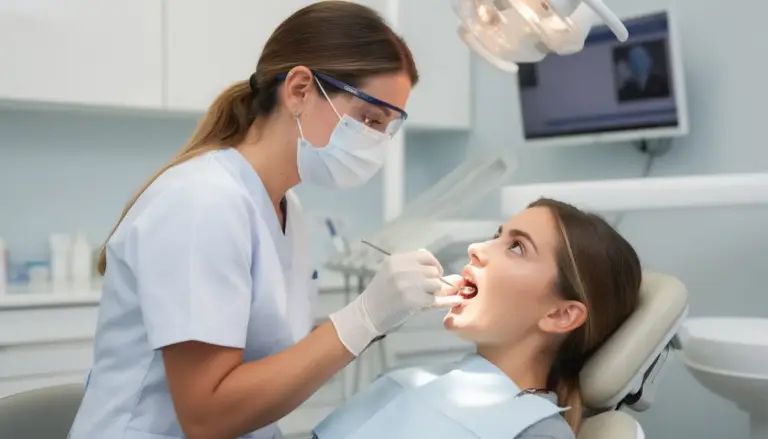How Long Does a Dental Exam Take? What to Expect During Your Visit
A dental exam is essential for maintaining good oral health. Whether you’re visiting for a routine exam or a more comprehensive exam, understanding what to expect can help ease any concerns. In this blog, we’ll explore the different types of dental exams, their duration, and how to prepare for your visit.
What Happens During a Dental Exam?
A dental examination is a routine check-up where your dentist evaluates your mouth, teeth, and gums for signs of tooth decay and gum disease. A dental examination typically occurs alongside a teeth cleaning appointment and assesses various aspects such as gum disease and oral cancer. During the exam:
- Your dentist will review your medical history and discuss certain lifestyle factors that may affect your oral health.
- Dental X-rays may be taken to assess any underlying issues not visible during a visual examination.
- Your dentist will evaluate your risk of developing oral health problems and provide recommendations for prevention and dental treatments.
Types of Dental Exams
Not all dental exams are the same. Depending on your needs, you may undergo one of the following types:
- Routine Dental Exams: Conducted every six months to maintain general oral health.
- Comprehensive Exam: A more thorough assessment that includes full-mouth dental x-rays, an oral cancer screening, and a gum disease evaluation.
- Limited Dental Exams: Performed for specific dental concerns, such as sudden tooth loss, a broken tooth, or other urgent issues.
- Dental Recall Exam: Quick follow-up check-ups after treatments to monitor healing and ensure continued oral health.
A dental examination includes assessing gum disease, oral cancer, and other oral health issues.
How Long Does a Dental Exam Take?
The length of a dental examination depends on the type of visit and any additional treatments required. Factors such as patient anxiety and past dental history can also influence its duration:
- A routine dental exam usually takes about 10-15 minutes.
- If additional treatments, such as an exam and cleaning, fluoride treatment, or gum disease evaluation, are required, the exam may last 30-45 minutes.
- Patients with complex oral health issues or anxiety may require more time for their evaluation and discussion.
Preparing for Your Dental Exam
To make the most of your visit, consider the following preparation tips:
- Bring an updated medical history and any relevant dental records.
- Inform your dentist of any changes in your oral or general health since your last visit.
- Have a list of questions or concerns about your dental health or treatments to discuss with your dentist.
What to Expect from Your Dental Hygienist
A dental hygienist plays a key role in your exam, assisting with preventive care and education. They will:
- Clean your teeth by removing plaque and tartar buildup.
- Guide proper oral hygiene techniques, including flossing techniques.
- Conduct an oral cancer screening and evaluate gum health as needed.
Factors That Can Affect the Length of Your Dental Exam
Several factors may influence the duration of your dental exam, including:
- The complexity of your oral health condition.
- Additional treatments such as deep cleanings, fluoride treatment, or cavity fillings.
- The time needed for your dentist to discuss your treatment plan and address your concerns.
- The presence of tooth decay gum disease, as detecting and planning treatment for these issues can extend the duration of the exam.
Importance of Regular Dental Exams
Regular dental exams are crucial for maintaining good oral health and overall well-being. By visiting your dentist regularly, you can prevent oral health concerns from progressing and detect potential problems early on. This proactive approach helps you avoid costly and invasive treatments down the line. Additionally, regular dental exams contribute to maintaining a healthy and beautiful smile, which can significantly boost your confidence and self-esteem. Remember, a routine dental exam is not just about checking for cavities; it’s about ensuring your entire mouth is healthy.
Common Concerns and Questions
It’s natural to have concerns and questions about dental exams. Many people experience anxiety or fear of the dentist, worry about the cost of dental exams, or are unsure about what to expect during their visit. Rest assured, your dental team is here to address any concerns or questions you may have. They aim to make your dental exam experience as comfortable and stress-free as possible. Don’t hesitate to communicate your worries; your dentist can offer solutions to help ease your anxiety and ensure you feel at ease during your visit.
Technological Advances in Dental Exams
Dental exams have significantly evolved thanks to technological advancements. Digital X-rays, for instance, provide a more accurate and detailed view of your teeth and gums, allowing your dentist to detect potential problems earlier. Intraoral cameras and other diagnostic tools enable your dentist to identify issues that may not be visible to the naked eye. These technologies not only enhance the accuracy of dental examinations but also make the process quicker and more comfortable for patients. Embracing these advancements ensures you receive the best possible care during your dental exams.
Cost and Insurance Considerations
The cost of a dental exam can vary depending on your insurance plan and any additional treatments you may need. Fortunately, most dental insurance plans cover bi-annual routine dental exams, making it easier to maintain your oral health without breaking the bank. It’s always a good idea to check with your insurance provider to understand what is covered and what you can expect to pay out of pocket. If you don’t have insurance, many dental offices offer payment plans or discounts to help manage the cost of your dental care.
Signs You Need a Dental Exam
Wondering if it’s time to schedule a dental exam? Here are some signs that indicate you should make an appointment:
- You haven’t had a dental exam in the past six months.
- You’re experiencing tooth pain or sensitivity.
- You have bleeding gums or other signs of gum disease.
- You have a history of oral health concerns, such as tooth decay or oral cancer.
- You’re experiencing dry mouth or other oral health issues.
By staying on top of your oral health and scheduling regular dental exams, you can help prevent problems and maintain a healthy and beautiful smile for years to come. Don’t wait for symptoms to appear; proactive care is key to good oral health.
Maintaining Good Oral Health
Regular dental exams are crucial in preventing oral health issues and maintaining a healthy smile. To keep your teeth and gums in great condition:
- Brush and floss daily to reduce plaque buildup.
- Eat a balanced diet that supports good oral health.
- Schedule regular dental exams to catch issues early and receive preventive care.
What’s Next After Your Dental Exam?
At the end of your visit, your dentist will provide a personalized treatment plan tailored to your needs. You may need to:
- Schedule additional treatments or follow-up dental appointments if necessary.
- Follow your dentist’s recommendations for at-home care to maintain oral health.
- Stay proactive in scheduling future exams to prevent potential dental problems.
Final Thoughts
A dental exam is a quick and essential step in keeping your smile healthy. By understanding what to expect and how to prepare, you can make the most of your routine dental appointment and ensure a positive dental experience. If it’s time for your next dental checkup, schedule an appointment with your dental team today!


